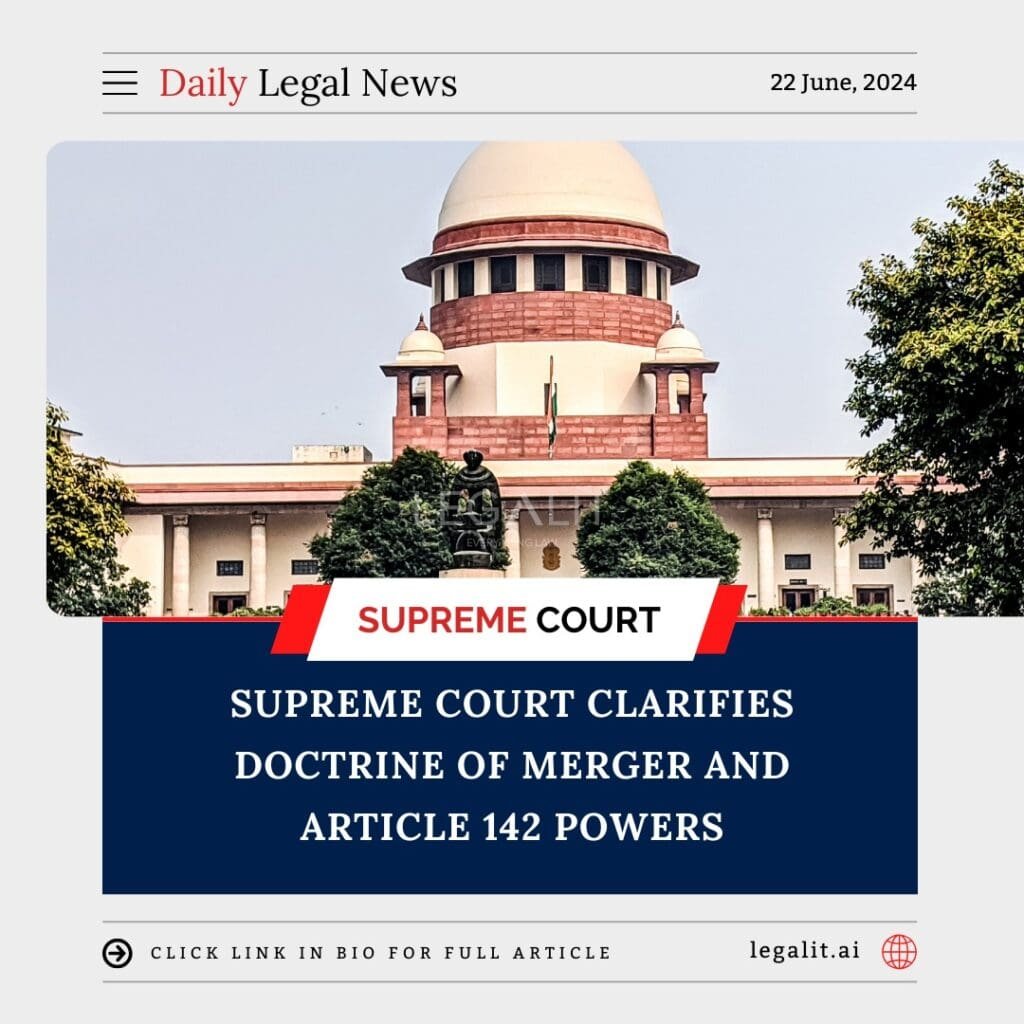
Background
The Supreme Court of India has clarified the application of the doctrine of merger, stating that it is not universal and that the powers under Article 142 of the Constitution are an exception. This doctrine typically involves the merging of a lower court’s order into that of a higher court upon appeal, but the court has highlighted specific exceptions.
Court’s Observations
The court observed that while the doctrine of merger generally applies to prevent multiple appeals and ensure finality, there are situations where it does not hold, particularly in the context of Article 142. Article 142 grants the Supreme Court wide-ranging powers to do complete justice, which can override procedural limitations.
Legal Implications
This clarification has significant legal implications, particularly in cases where the Supreme Court exercises its extraordinary powers under Article 142. It underscores the court’s ability to ensure justice beyond the constraints of procedural norms, thus maintaining the flexibility needed to address complex legal issues.
Conclusion
The Supreme Court’s ruling reinforces the nuanced application of the doctrine of merger and the exceptional powers granted under Article 142. This ensures that the court can deliver comprehensive justice, addressing any gaps or limitations within the procedural framework.